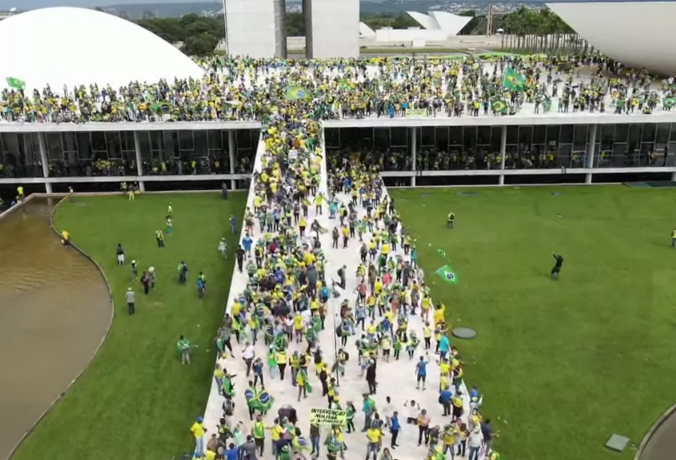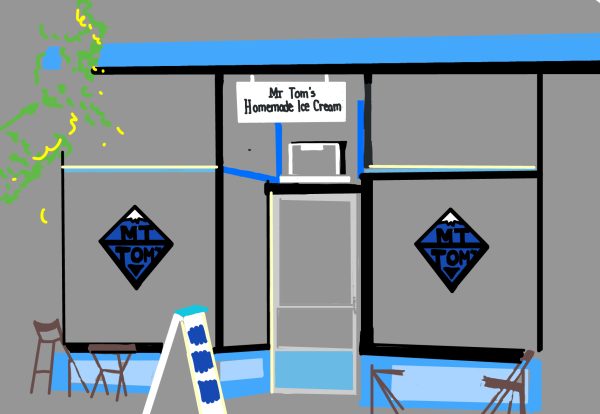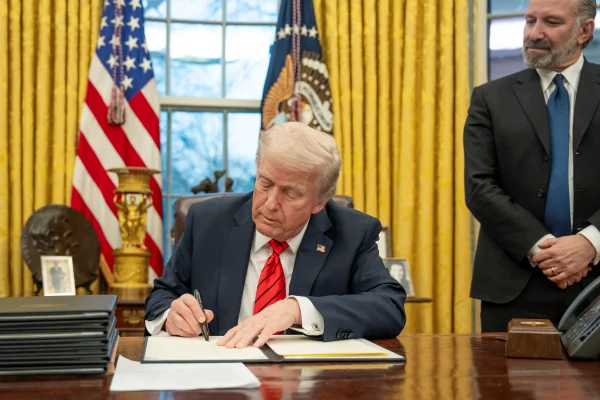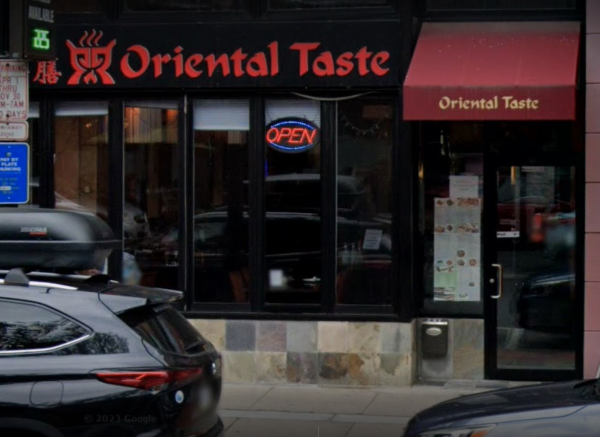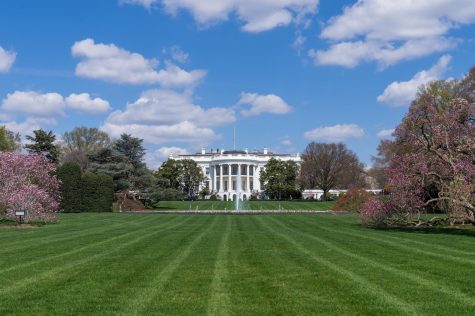Protesters Storm Brazilian Government Buildings
Brazil’s capital was left in shambles after a recent riot eerily reminiscent of United States’ own January 6 insurrection.
On Sunday, January 8, multiple Brazilian government buildings including congress, the Supreme Court, and the presidential palace were stormed by right-wing ex-president Jair Bolsonaro’s supporters after an election they deemed fraudulent.
“Onlookers said they seemed beside themselves with hate, like a horde of zombies. They were running down hallways, smashing things, urinating, defecating in the corridors and in the rooms on one destruction spree,” according to CNN.
Thousands were arrested within a few days, and those who have been apprehended have been heavily condemned by the recovering Brazilian government. Windows were smashed and furniture from these democratic institutions was used to form barricades against security, as supporters draped in Brazil’s national colors rushed into Brazil’s major governmental buildings.
This all comes after the presidential inauguration of Luiz Inácio Lula da Silva, who returned to power after a 12-year break from political engagements.
Bolsonaro supporters had been camped out near the capital ever since his election defeat; Brazilian armed forces had been given clearance to do what they could to protect the capital. This is not even the first attack; on December 12, a group attempted to rush the federal police headquarters in a move to demonstrate disapproval of Bolsonaro’s election defeat.
There have also been previous attempts at a coup, as groups of Bolsonaro’s advocates have been seen around Brazilian military bases. These groups are being called “terrorists” by Brazil’s current major political powers.
Bolsonaro himself has had a major role in these violence outbreaks. He publicly demonstrated sentiments of doubt regarding the legitimacy of the election, prior to any voting; he had no evidence to back his claims. Bolsonaro suggested that any result that didn’t go his way would indicate some sort of problem.
Despite attempts to annul ballots after things didn’t seem to be going his way, the Brazilian government did not take Bolsonaro seriously and did not grant his wishes. Brazil’s Ministry of Defense has reported that they have not found any evidence of fraud in the voting.
At first glance, this immediately lines up with the events of the infamous January 6 insurrection in the United States. On this date in 2021, a mob of President Donald Trump’s far-right supporters stormed the U.S. Capitol in an attempt to overturn the 2020 presidential election, just as Bolsonaro’s advocates attacked multiple government buildings.
The U.S. attack resulted in the deaths of five people and the injuries of many others. The rioters breached the Capitol building, vandalizing offices and clashing with police. The attack led to the evacuation of the Capitol and the delay of the certification of the presidential election results.
The events of January 6 have been widely condemned, and many have called for those involved to be held accountable for their actions, including former President Donald Trump, whom many say incited violence through numerous speeches and tweets.
Sophomore Carter Cleary believes that the rioters were brainwashed by former president Trump, and that they were not justified in committing these violent acts of aggression.
“John Locke said that the people have the right to overthrow a ruler who does not do things in their interest. The insurrectionists, however, didn’t even give Biden a chance to lead,” Carter said. “With Trump leading this movement, it’s even more ludicrous. Trump doesn’t care about democracy; he manipulated his followers into attempting a takeover so that he could stay in power.”
Both of these Brazilian candidates were, in fact, no strangers to controversy.
Jair Bolsonaro, during his time in office, had been heavily criticized for his handling of the Covid pandemic. He initially downplayed the threat of the virus, calling it a “little flu,” and resisted implementing lockdowns and other measures to slow the spread of the disease. Bolsonaro also fired the health minister who had been leading the country’s response to the pandemic, causing confusion and disruption within the government’s response efforts. These actions have been criticized as contributing to the severity of the outbreak in Brazil, which has one of the highest numbers of confirmed cases and deaths from Covid in the world.
Luiz Inácio Lula da Silva, during his extensive history in the political scene, has been involved in several corruption scandals. One of the most notable, Operation Car Wash, was a large-scale investigation into political corruption and money laundering in Brazil. Lula was found guilty of corruption and money laundering in 2017 and was sentenced to 9.5 years in prison. He was later convicted in a separate case of money laundering and accepting illegal campaign contributions, receiving a sentence of 12 years and one month. Lula’s conviction has been a matter of controversy, with some claiming that the charges were politically motivated.
Senior Alexander Calianos thinks that despite both candidates’ past controversies, violence toward the Brazilian government is completely uncalled for.
“It’s unacceptable to storm any government buildings over something that can’t even be proven,” Alexander said. “I understand that both Bolsonaro and Lula da Silva’s actions have caused many to resent them as politicians, but there’s definitely better methods of protesting discontent than with physical force.”



